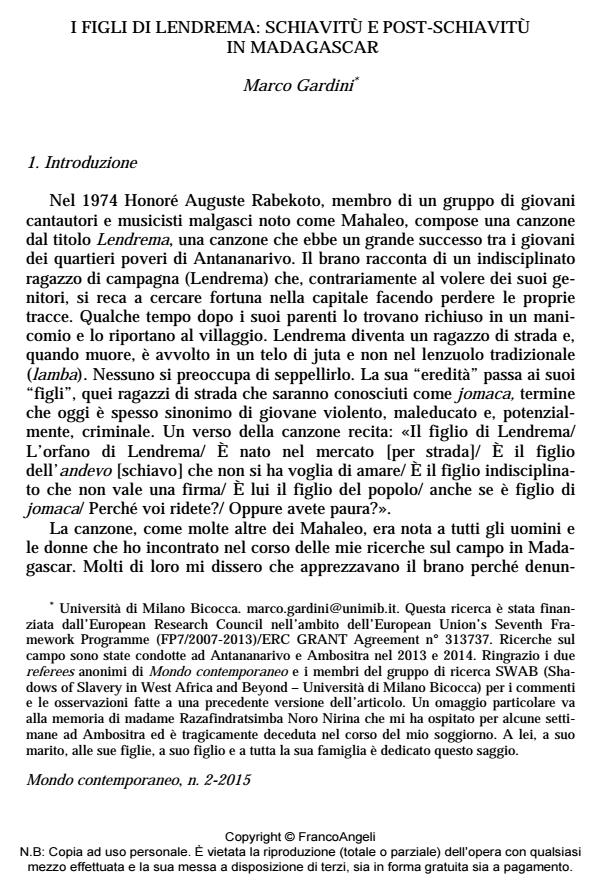Lendrema’s Children: Slavery and Post-Slavery in Madagascar
Journal title MONDO CONTEMPORANEO
Author/s Marco Gardini
Publishing Year 2015 Issue 2015/2
Language Italian Pages 23 P. 65-87 File size 103 KB
DOI 10.3280/MON2015-002004
DOI is like a bar code for intellectual property: to have more infomation
click here
Below, you can see the article first page
If you want to buy this article in PDF format, you can do it, following the instructions to buy download credits

FrancoAngeli is member of Publishers International Linking Association, Inc (PILA), a not-for-profit association which run the CrossRef service enabling links to and from online scholarly content.
Although in Madagascar slavery was formally abolished in 1896, a growing number of studies has shown that slaves descendants are still exposed to various forms of social discrimination in many regions of the island. The categories of social inequality that characterized these societies before colonization seem to have survived colonialism and independence, and are often used to describe contemporary inequalities. Based on ethnographic research conducted in the slums of Antananarivo (Manarintsoa-Isotry) and in the city of Ambositra, this article explores how the servile origin - real or supposed - has been reproduced, renegotiated or challenged in a changed political scenario and how it acquired new political meanings. After a brief presentation of the historical role that the slave trade, slavery and abolition played in the processes of political centralization in Madagascar and a discussion of the historical and anthropological trajectories of research on this topic, this article analyzes the different criteria that people use in order to say if someone is a slave descendant and the role that the issue of slavery played in the postindependence political arena.
Keywords: Madagascar, slavery, post-slavery, slaves descendants, discrimination, emancipation
- Fear of the Dark: Urban Insecurity and the Legacies of Slavery in Antananarivo, Madagascar Marco Gardini, in Journal of African Diaspora Archaeology and Heritage /2021 pp.110
DOI: 10.1080/21619441.2020.1802158
Marco Gardini, I figli di Lendrema: schiavitù e post-schiavitù in Madagascar in "MONDO CONTEMPORANEO" 2/2015, pp 65-87, DOI: 10.3280/MON2015-002004